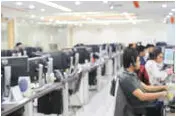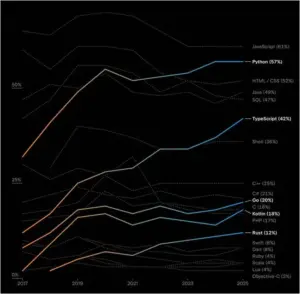The Tsa Likes Facial Recognition At Airports. Passengers And Politicians, Not Somuch
US lawmakers are trying to extend the use of facial recognition at airports, despite many airline passengers objecting to the practice.
US airports have used facial scanners since 2017, when the Transportation Security Administration (TSA) started trials of the tech in the hope it would improve security and speed boarding times. 250 airports currently use facial recognition.
According to a May 2025 report [PDF] by the Privacy and Civil Liberties Oversight Board (PCLOB), facial recognition at airports is accurate.
The report cites National Institute of Standards and Technology research that fewer than one percent of recognition attempts produced a false positive or false negative – considerably better than many biometric identifiers.
Despite that accuracy, and the chance to opt out of using facial recognition, many passengers don’t like it.
A July report [PDF] from the non-profit Algorithmic Justice League (AJL) found airport staff offered just one percent of travelers the chance to opt out.
Some of those who chose to opt out reported poor experiences.
“I got in line for security and presented my driver’s license to the agent. The agent asked me to stand in front of the camera,” reported one passenger at Fort Lauderdale-Hollywood International Airport last year.
“Knowing my rights, I asked if I could opt out of the photo. The agent got angry, raising his voice to tell me that ‘we already took your picture ‘and that there are ‘a thousand cameras in this airport…there’s a camera in your phone too.'”
Many passengers were told that they either couldn’t opt out of the facial scans, or that they were too late to do so. Over two-thirds of those who opted out reported negative treatment from staff, and in one case a passenger missed their flight due to the time required to process them at the airport.
“I requested my usual photo opt-out. This time, the TSA agent made quite a scene: she closed off her lane with a divider rope, took my ID and boarding pass to another lane, and left me waiting for five minutes,” reported one passenger at Harry Reid International Airport in Las Vegas.
“When she returned, she sat down and spent another five minutes scrutinizing my ID and boarding pass. Concerned, I asked if there was a problem. She replied, ‘No, I just have to verify everything manually; you should consider just allowing the photo next time.'”
Over half of fliers interviewed for the study reported they did not see notifications explaining their right to opt out, and 74 percent said they weren’t warned about its use. Over 60 percent of respondents expressed concern that their facial images could be used by third parties and over 20 percent felt that they weren’t comfortable verbally opting out for fear that it would cause them a delay.
The TSA had no comment at time of publication. However, it claims that facial scans are only used to match a person’s image against their ID, and that pictures aren’t stored “except in a limited testing environment for evaluation of the effectiveness of the technology.”
Congress is currently auditing the system, just to make sure.
Politicians want it both ways
In May a bipartisan group of senators, led by Jeff Merkley (D-OR), reintroduced the Traveler Privacy Protection Act, which would ensure that passengers can opt out of facial scanning and make sure that airlines and airports cannot make it mandatory.
“No one should be required to have their face scanned to travel, and no government should have the power of a national surveillance system at its fingertips,” Merkley said on Tuesday, citing the AJL report.
“Our Traveler Privacy Protection Act would preserve passengers’ right to use an approved document—like a driver’s license—to travel by air. In addition, it would require signage to inform passengers of that right and protect the data collected from abuse.”
Merkley documented his experience at Washington DC in a video you can see below, when he was told he couldn’t really opt out of being photographed since he’d already walked past a camera. He accused the TSA of wanting to build a library of images depicting air travelers’ faces.
The Senate Committee on Commerce, Science, and Transportation considered the bill on Tuesday.
Ahead of that hearing, industry body Airlines for America reportedly wrote to senators to claim that eschewing facial scanning would make everyone less safe and cost more money.
“Restricting TSA’s use of biometrics is a step backward for our national security,” the letter said. In addition it would “prevent TSA from achieving staffing efficiencies through technology automation by requiring officer-based interactions – forcing 75 percent of TSA’s budget to remain tied to staffing rather than technology investment.”
Unsurprisingly the Security Industry Association, which represents vendors in the area, has also come out strongly [PDF] against the legislation.
“Rolling back proven traveler verification capabilities will ultimately serve to enable bad actors that seek to use fraudulent documents or identities in order to commit crimes like smuggling or trafficking in persons, inflict harm on innocent citizens or carry out acts of terrorism,” it wrote. ®
A considerable amount of time and effort goes into maintaining this website, creating backend automation and creating new features and content for you to make actionable intelligence decisions. Everyone that supports the site helps enable new functionality.
If you like the site, please support us on “Patreon” or “Buy Me A Coffee” using the buttons below
To keep up to date follow us on the below channels.

![[QILIN] - Ransomware Victim: NurseSpring 1 image](https://www.redpacketsecurity.com/wp-content/uploads/2024/09/image-300x300.png)


